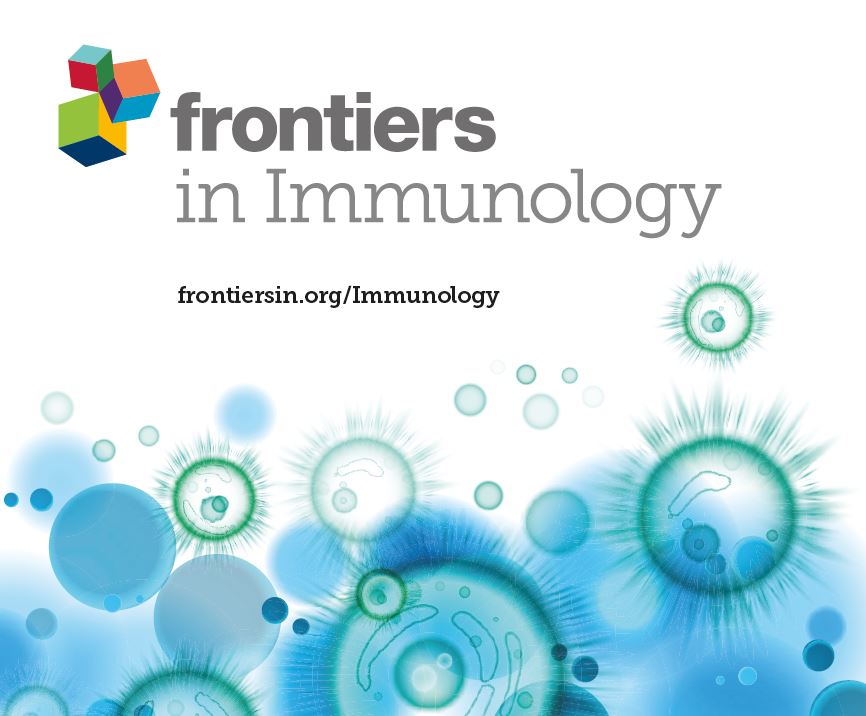Peripheral NK cell phenotypic alteration and dysfunctional state post hepatitis B subviral particles stimulation in CHB patients: evading immune surveillance
IF 5.7
2区 医学
Q1 IMMUNOLOGY
引用次数: 0
Abstract
BackgroundThe relationship between chronic hepatitis B (CHB) infection and natural killer (NK) cell dysfunction is well-established, but the specific role of HBV viral antigens in driving NK cell impairment in patients with CHB remains unclear. This study investigates the modulatory effects of hepatitis B virus subviral particles (HBVsvp, a representative model for HBsAg) on the phenotypic regulation (activating and inhibitory receptors), cytokine production and cytotoxic potential of peripheral blood mononuclear cell-derived natural killer cells (PBMCs-derived NK cell), which contributes to NK cell dysfunction in CHB infection, potentially serving as an effective HBV immune evasion strategy by the virus.MethodsNK cells were isolated from peripheral blood of patients with CHB (n=5) and healthy individuals (n=5), stimulated with HBVsvp. Subsequent flow cytometric characterization involved assessing changes in activating (NKp46 and NKG2D) and inhibitory (CD94) receptors expression, quantifying TNF-α and IFN- γ cytokine secretion, and evaluating the cytotoxic response against HepG2.2.15 cells with subsequent HBVsvp quantification.ResultsIn CHB patients,乙型肝炎亚病毒颗粒刺激后 CHB 患者外周 NK 细胞表型改变和功能失调状态:逃避免疫监视
背景慢性乙型肝炎(CHB)感染与自然杀伤细胞(NK)功能障碍之间的关系已得到证实,但 HBV 病毒抗原在慢性乙型肝炎患者 NK 细胞功能障碍中的具体作用仍不清楚。本研究探讨了乙型肝炎病毒亚病毒颗粒(HBVsvp,HBsAg的代表模型)对外周血单核细胞源性自然杀伤细胞(PBMCs-derived NK cell)的表型调节(激活和抑制受体)、细胞因子产生和细胞毒性潜能的调节作用。方法从 CHB 患者(5 人)和健康人(5 人)的外周血中分离出 NK 细胞,并用 HBVsvp 进行刺激。随后的流式细胞鉴定包括评估活化受体(NKp46 和 NKG2D)和抑制受体(CD94)表达的变化,量化 TNF-α 和 IFN- γ 细胞因子的分泌,以及评估对 HepG2.2 的细胞毒性反应。结果在 CHB 患者中,体外暴露于 HBVsvp(代表 HBsAg 模型)的 PBMCs 衍生 NK 细胞显著降低了 NK 细胞激活受体的表达(P = 0.022),增加了 CD94 + NK 细胞的表达(P = 0.029),与健康供体相比,TNF-α - IFN-γ 细胞因子水平降低,细胞毒性能力受损(表现为与 HepG2.2.15 细胞共培养时细胞增殖增加和 HBVsvp 水平升高,且呈时间依赖性)。结论这些研究结果表明,HBVsvp 可能会诱导 NK 细胞功能失调,表现为表型失衡,细胞因子和细胞毒性水平随之降低,这表明 HBVsvp 具有免疫抑制作用,会损害 CHB 患者的抗病毒防御能力。这些数据加深了我们对 NK 细胞与 HBsAg 相互作用的理解,并强调了靶向 CD94 抑制受体恢复 NK 细胞功能作为一种免疫治疗方法的潜力。要验证这些观察结果并将其作为可靠的生物标记物,还需要进一步的临床研究。
本文章由计算机程序翻译,如有差异,请以英文原文为准。
求助全文
约1分钟内获得全文
求助全文
来源期刊

Frontiers in Immunology
IMMUNOLOGY-
CiteScore
9.80
自引率
11.00%
发文量
7153
审稿时长
14 weeks
期刊介绍:
Frontiers in Immunology is a leading journal in its field, publishing rigorously peer-reviewed research across basic, translational and clinical immunology. This multidisciplinary open-access journal is at the forefront of disseminating and communicating scientific knowledge and impactful discoveries to researchers, academics, clinicians and the public worldwide.
Frontiers in Immunology is the official Journal of the International Union of Immunological Societies (IUIS). Encompassing the entire field of Immunology, this journal welcomes papers that investigate basic mechanisms of immune system development and function, with a particular emphasis given to the description of the clinical and immunological phenotype of human immune disorders, and on the definition of their molecular basis.
 求助内容:
求助内容: 应助结果提醒方式:
应助结果提醒方式:


